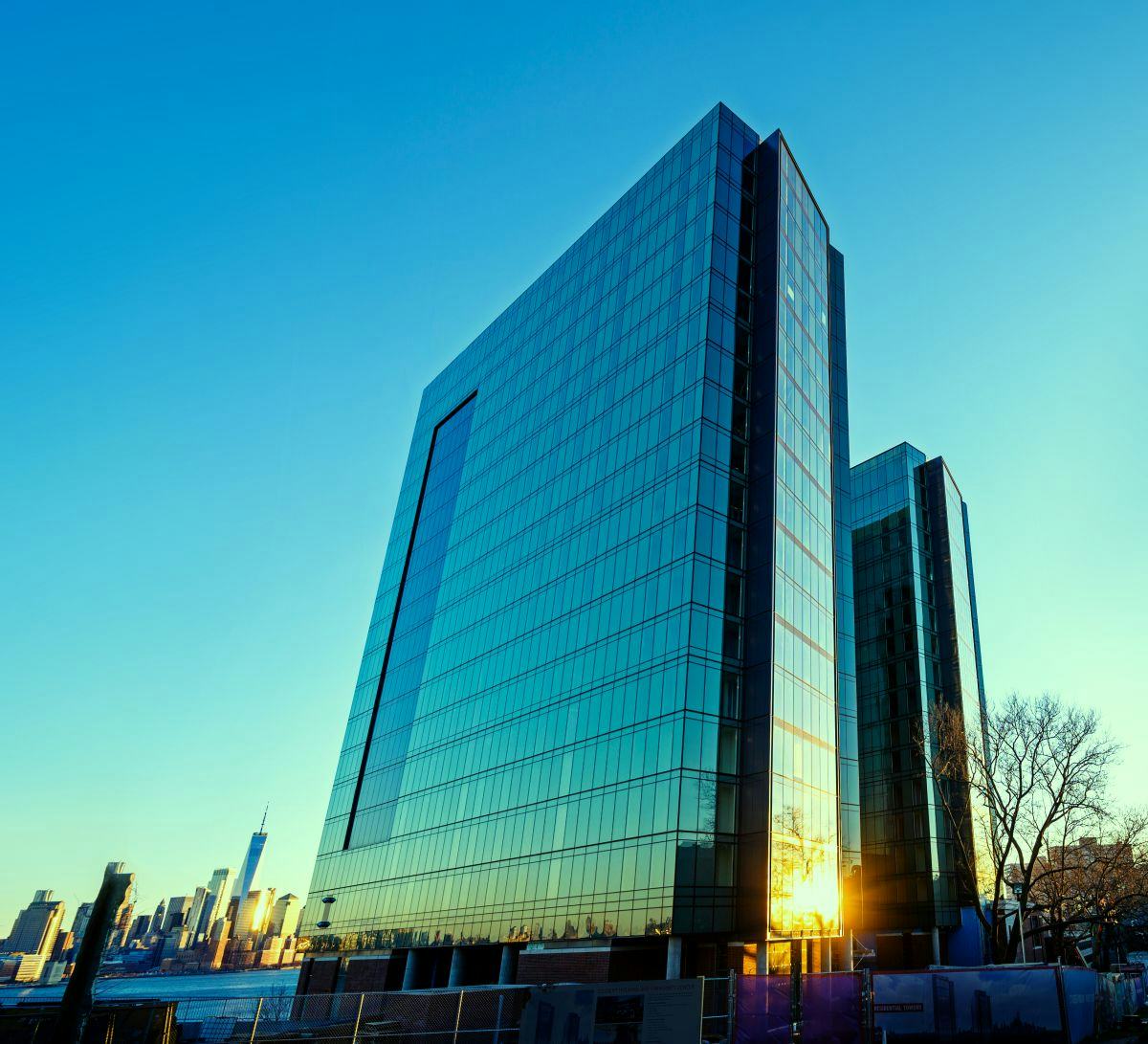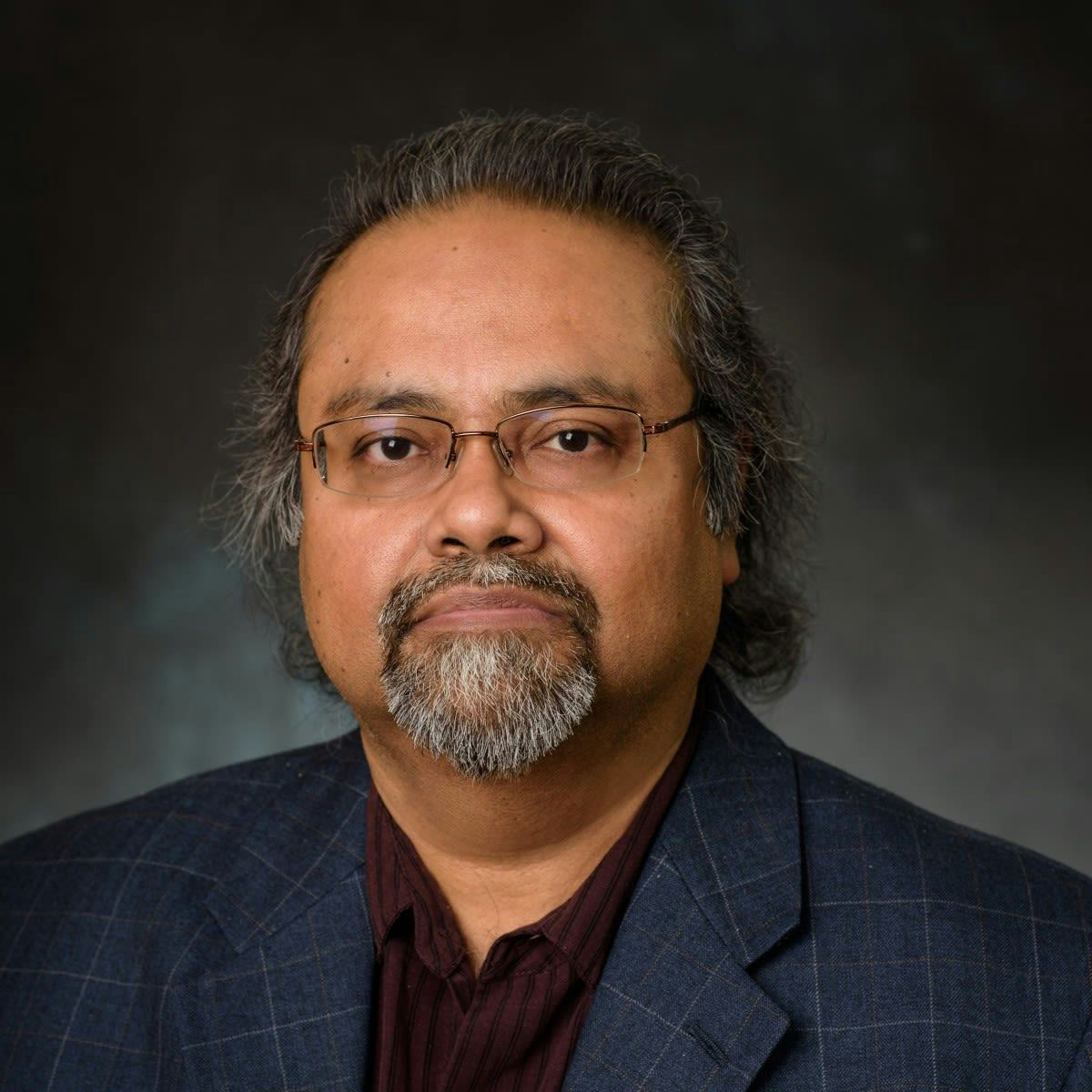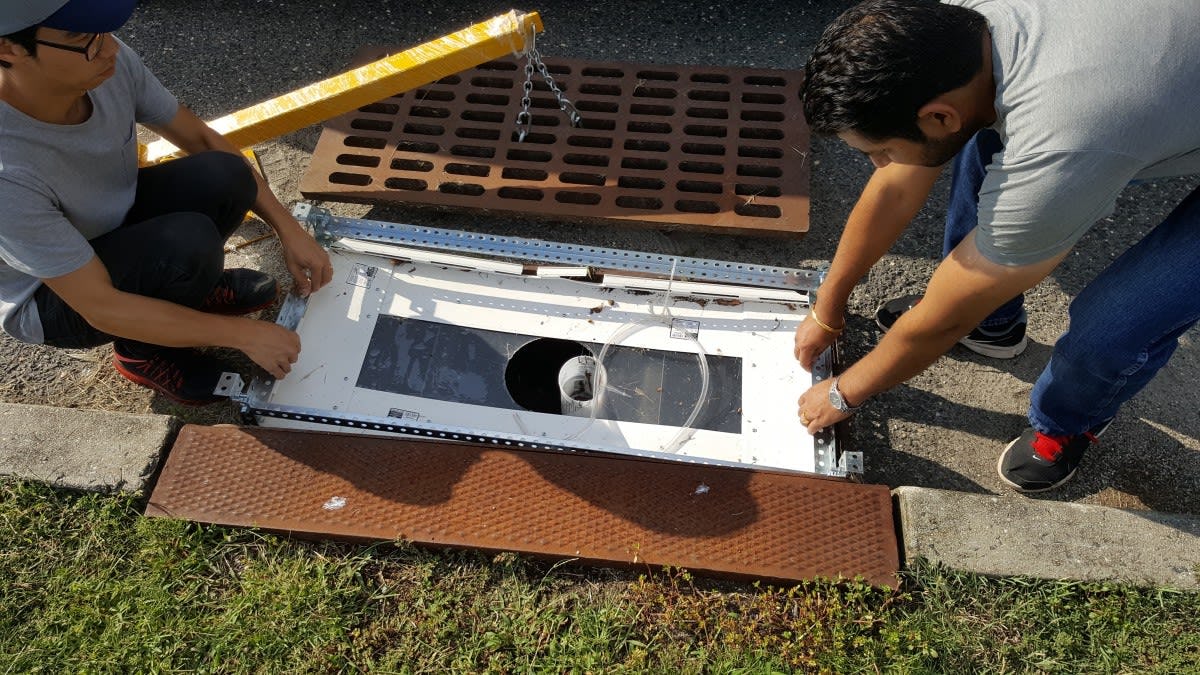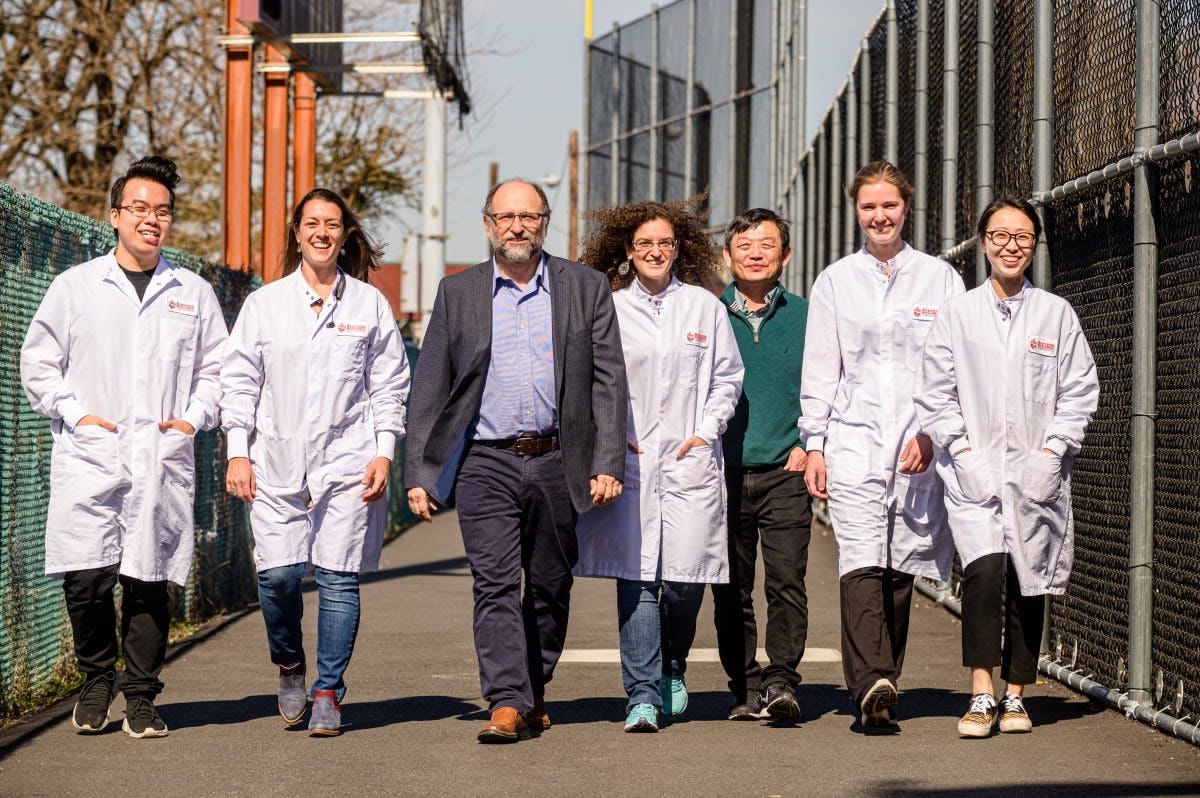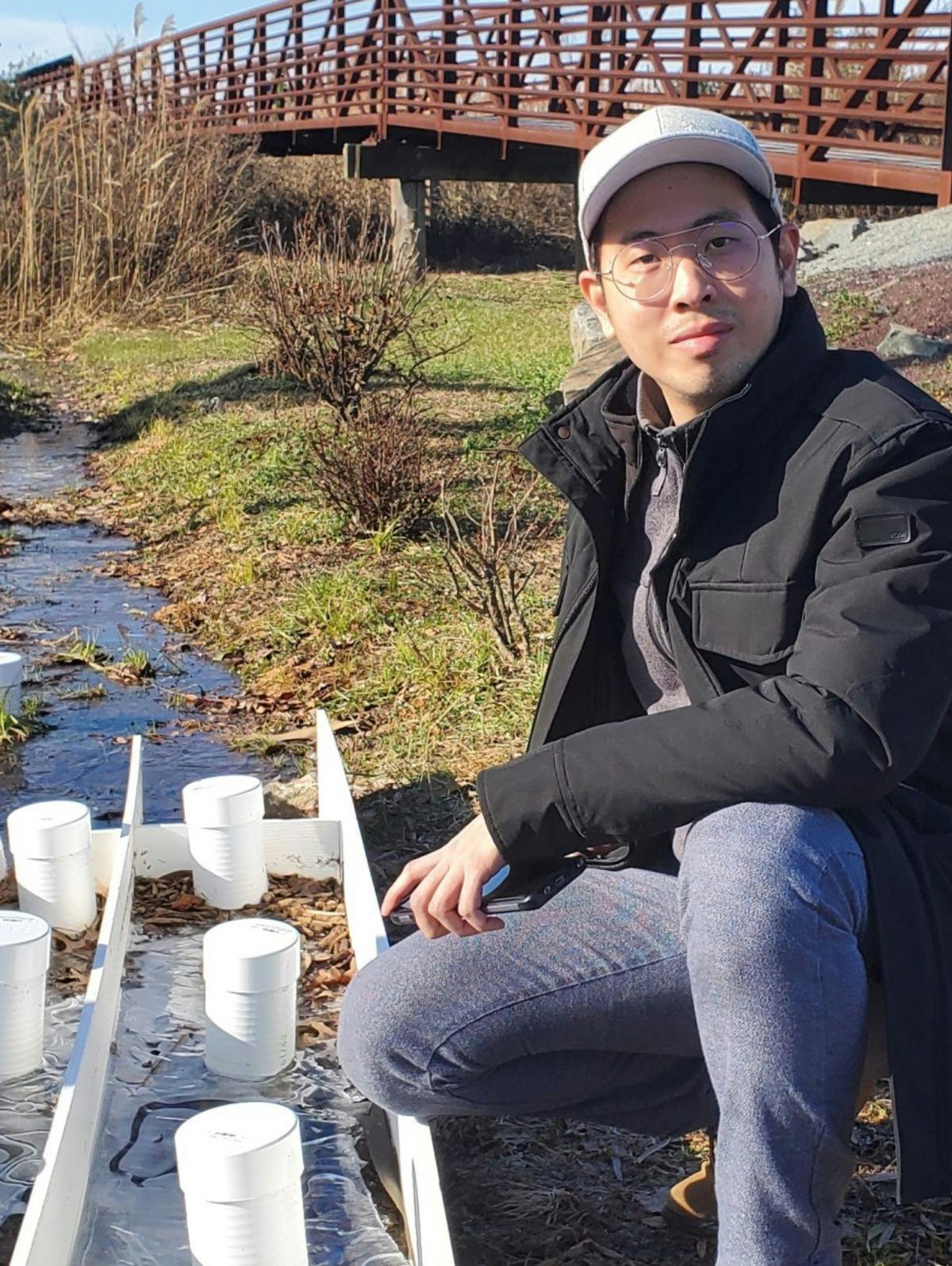Sustainable Stevens: How the University Is Helping Plan A Greener Future
National accolades for a green campus, a new sustainability center, leading-edge research — and increased enrollment in environmental programs
When Stevens recently announced a new $1.45 million gift to fund creation of the new Stevens Center for Sustainability (SCS), it was the latest in a long line of environmentally responsible initiatives taken by the university.
Stevens had previously announced it would begin sourcing all campus its electricity entirely from regional renewable energy sources and has done so since fall 2021, one of a very small number of U.S. universities to formalize such a commitment.
In an era when 75% of college applicants in one recent survey report being influenced by the environmental commitment of colleges they consider, the university's efforts are helping set Stevens apart.
"A kind of collective effort is really ramping up here, and we are beginning to acquire industry partners as well," notes SCS Director Dibyendu "Dibs" Sarkar, who also created and directs much of the university's sustainability programming.
In fact, Stevens has taken action ahead of the curve on many environmental measures.
Solar panels were installed on the roofs of the athletics facility and library back in 2007, for example, with more panels added to dormitories, parking facilities and a laboratory building by 2010.
The landmark Academic Gateway Complex was certified as LEED Gold when it opened in 2019 — and when the towered University Center Complex, the next major campus construction project, opened in 2022 it too was awarded the coveted LEED Gold certification. (The certification signifies significant energy and water conservation, among other eco-friendly measures integrated into the design and construction of facilities.)
Additional innovations are also helping "green" Stevens' hilltop campus, as well:
Some campus facilities utilize cogeneration technologies that conserve energy by simultaneously generating electricity and heating water.
All replacement lighting on campus is now done with energy-efficient LED lights.
With the partnership of PSEG’s Clean Energy Future Energy Efficiency Program, more efficient heating equipment and lighting were recently added to campus dormitories as well as McClean Hall — home to the biomedical engineering department, Semcer Center for Healthcare Innovation and other labs.
The university maintains nine electric vehicle charging stations on campus, with upgrades compatible with newer-model electric vehicles — as well as expanded capacity — planned for the near future.
All paper products in public restrooms on campus have been tree-free since 2020, thanks to a partnership with Long Island-based Emerald Brand. Recycled-paper sources are also given priority when purchasing for other types of paper needs.
There's more in the works, too. A group of about 20 Stevens students recently advocated for and began participating in a pilot food-waste composting project on campus, for instance.
"We are working on building and promoting a culture of sustainability," notes Luke Hansen, Stevens' Director of Sustainability and Transportation.
"When students, staff and faculty begin to realize there are like-minded people on campus, information about sustainability spreads and participation grows — and all these small acts make a difference."
Accolades for infrastructure, coursework, planning
The environmental community has taken notice.
In 2020 Stevens was elevated to the rank of a STARS Gold institution from a previous Silver ranking, and in December 2023 Stevens maintained its Gold ranking when new rankings were unveiled.
STARS (the Sustainability Tracking, Assessment & Rating System) is a transparent self-reporting framework for colleges and universities developed by the Association for the Advancement of Sustainability in Higher Education (AASHE).
AASHE’s program evaluates physical campus facilities and environmental initiatives such as buildings, infrastructure, transportation planning, recycling programming, energy efficiency, greenhouse gas reduction and bicycle-friendliness — but also considers sustainability curricula, faculty and student environmental research, and transparent disclosure of university investments.
"Stevens Institute of Technology has demonstrated a substantial commitment to sustainability by achieving a STARS Gold Rating and is to be congratulated for their efforts," said Association for the Advancement of Sustainability in Higher Education (AASHE) Executive Director Meghan Fay Zahniser when Stevens first attained the milestone.
"As a technological university known for innovating, Stevens is dedicated to finding solutions to help protect our environment — and to applying those approaches on our campus and in our classrooms," added President Nariman Farvardin.
"This recognition affirms Stevens’ commitment to making sustainability integral to both the operations of the school and the educational programs we offer," notes Sarkar, who also presides over a campus sustainability seminar series that has operated since 2016 with the generous support of six corporate sponsors, including Hugo Neu Corporation.
In 2020, the Sierra Club had ranked Stevens as one of the top 100 universities in the U.S. and Canada for environmental quality. The organization used its own weighting of AAHSE's data in 18 categories to determine the rankings.
"The schools on this list have shown incredible resourcefulness as they have innovated new ways to maintain — and in many cases, further — their sustainability objectives," noted the organization when releasing those rankings.
In 2021, the Princeton Review tabbed Stevens as one of its "Green Colleges," using a rankings methodology that combined university-reported data with student surveys.
"These schools demonstrate their commitment to sustainability in a range of innovative ways. We recommend them highly to all students seeking to learn and live at a green college," said Rob Franek, Princeton Review editor in chief, at the time.
Students motivated by environmental concerns
Students have made major contributions to sustainability design, research and planning both on campus and in local municipalities.
"Our students have helped so many local communities," notes Sarkar, including the development of sustainability management plans for Stevens and a range of New Jersey communities such as Jersey City, Secaucus, West Orange and West New York— as well as for Ramapo College's northern New Jersey campus and a preliminary draft plan for the transportation agency NJ TRANSIT.
"We have also seen rapid growth in applications to the university's sustainability degree programs," he adds.
The flagship master's program, for instance — which received approximately 10 applications during 2016, its first year — now sees more than 60 applicants each year for the dozen or so students it can accommodate annually.
Ada Heinze '22 M.S. '23 obtained her Stevens bachelor's in chemical engineering, then completed the Sustainability Management master program. She developed an interest in the field during two cooperative education programs — including one treating and decontaminating soil impacted by petroleum-based contaminants — and a graduate-level environmental management course.
While enrolled, her teams presented projects on the environmental impact of oil spills; managing the challenge of copper pollution in the Great Lakes region; and green infrastructure design for a coastal New Jersey boulevard that incorporates specially engineering seawalls, oyster reefs and sand dunes.
"The program really inspired," she said. "I really do want to do my part to make a difference when I begin a career, and as a chemical engineer, I feel I can take a route to that."
Viravid Na Nagara M.S. '18 Ph.D. '21 — a Stevens graduate and current postdoctoral researcher from Thailand — engineered and installed a Stevens-developed green mulch in a rain garden in Mill Creek Point Park in Secaucus, New Jersey.
The mulch filters out metals and petroleum hydrocarbons generated by vehicles, as well as nutrients like phosphorus from urban stormwater runoff, helping prevent both water pollution and dangerous, oxygen-depleting algal blooms.
"Runoff has become a big problem," explained Na Nagara. "The copper in brakes, the zinc in tires, the lead in house paint, the nutrients from excess fertilizers: all of this runs off into water supplies, bays, rivers and the ocean.
"Developing green technologies to address these challenges has been a perfect fit for me. I'm doing what I am passionate about, working in the field and the lab, and meeting people in industry and government. It is so exciting and rewarding to see the green technologies we develop here helping to keep pollutants out of the environment."
"The Town of Secaucus is proud to partner with Stevens Institute of Technology to implement important green infrastructure research in our community," noted Jennifer Schneider, the town's environmental coordinator, "contributing to our stormwater management goals and providing another way to help improve the Hackensack River watershed."
Green careers in a greener future
Fran Levy, a sustainability management master's student from Ocean County, New Jersey, selected Stevens for her graduate studies to make a difference.
"I want to put my foot in the environmental field, not merely be a chemist," she said. "This program has been so fulfilling, working on projects such as natural solutions to the societal problem of lead in drinking water. Professors in the program are truly passionate; they listen to their students, and are always there to help.
"They also come from many fields and industries, so they give us exposure to many possible career paths. And the small size of this program ensures a lot of one-to-one contact, giving us the highest possible learning outcomes in my opinion."
"Stevens' sustainability students are particularly valuable to companies and agencies, because most of them have a technical background and are also passionate about the cause," agrees Sarkar. "They join the workforce armed with an understanding of sustainability tools such as life-cycle analysis, environmental impact analysis, greenhouse gas emissions monitoring and analysis, and carbon accounting."
In another effort, CES director Christos Christodoulatos supervises multiple student-faculty projects in collaboration with the U.S. Department of Defense in wastewater treatment, mitigation and reuse, including the development of novel microalgae-derived biofuels from carbon- and nitrogen-rich wastewater streams.
From small-scale experiments in flasks, the interdisciplinary project has progressed to a successful greenhouse-sized pilot study of algae cultivation, producing more than two dozen journal papers (many co-authored by students) along the way.
Next, says Christodoulatos, his faculty-student teams will scale up to a one-acre reactor experiment. The technology may be viable commercially within as little as one to two years.
"Green jobs are going to be the jobs of the future; already in 2021, we are seeing so many sustainability jobs beginning to open up," notes Sarkar. "Demand is very strong, while the supply of technically trained people is limited.
"If you have some technical skills and you care about the future of the Earth and the people who live here, Stevens' sustainability programs are for you. They will help shape your passion into a career that will create an impact."
Research in air and water quality, climate change
Stevens faculty also continue to produce leading-edge research in a variety of sustainability areas such as clean air, clean water, pollution reduction, transportation planning and climate change resiliency:
Civil engineering professors Yi Bao and Weina Meng devise and test strong new materials that hold the potential to cleanse the air of carbon and of acid rain-causing, warming-inducing pollutants.
Sarkar experiments with natural grasses that remove pharmaceutical compounds and other contaminants from wastewater, installing and monitoring pilot plots in combination with a biodegradable green chemical in urban locations in New Jersey and Texas to cost-effectively remove lead from contaminated soils in residential properties and parks.
Physicist Knut Stamnes works with NASA to develop algorithms enabling more accurate satellite imagery, helping to enhance data streams that are critical for scientists assessing regional and global environmental quality.
Environmental engineering professor Xiaoguang Meng has developed and tested a number of technologies, including specially manufactured electrospun polymer nanofibers, that filter and remove toxic heavy metals from water supplies. Dr. Meng's pioneering technologies for effective, affordable and easy to use water purification have helped UNICEF design systems that improved Bangladesh's drinking water during an environmental crisis affecting millions of people.
Working with a corporate partner, chemical engineering professor and department chair Adeniyi Lawal has developed a novel process to recapture and convert atmosphere-warming methyl bromide gases used to fumigate forest products and foods.
Stevens researchers have analyzed improvements in vehicle automation and their potential impacts on air quality, helping build the case for more intelligent vehicles and traffic management.
A host of other efforts are focused on quantifying, predicting, preparing for and alleviating the impacts of climate change. The Davidson Lab's pioneering work in flood, surge and sea level monitoring and beach replenishment, for instance, is supported by multiple partners and collaborators such as the National Science Foundation, NJ TRANSIT and Princeton University.
Renewable energy research investigations ranging from better batteries and smarter power grids and wind farms to novel bioreactors and ocean wave-power harvesters also continue to develop new technologies and insights that will help ensure a more diverse, lower-impact energy mix in the future.
"We have not only established Stevens as a leader in higher education sustainability, but have also benefitted the entire campus community," summarizes Robert Maffia, university vice president for facilities and campus operations.
"Our students, faculty and staff now experience more sustainable commuting options, healthier facilities, and a beautiful green campus that also serves as a living laboratory."

